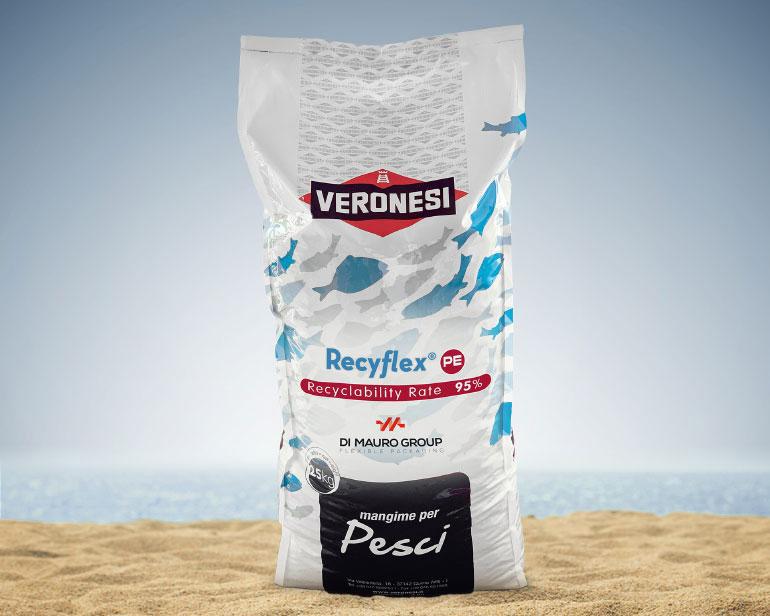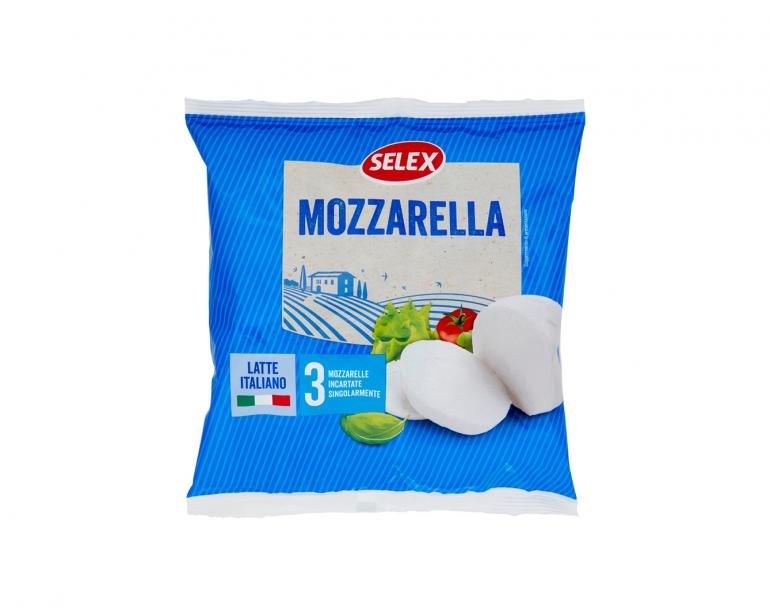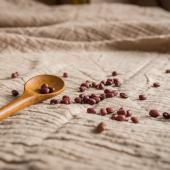CONAI 2022 Eco-design Contest, Episode 3
Sustainable packaging: deserving cases awarded Ecopack 2022: 5 super-winners and another 238 cases awarded in the new edition of the Conai Contest for eco-design. Overall, it is estimated that the initiatives implemented by companies have permitted savings of 11% in water consumption, 22% in energy consumption and 29% in CO2 emissions.
Five circular design innovations stand out in the prize-list of the ninth edition of Ecopack, the CONAI eco-design Contest. Innovation and attention towards the environment are represented on the podium in a new record year for the Contest, which has seen participations increase every year since its beginning (in 2014). There were 383 proposals from Italian companies which reviewed their packaging technologies to make them more sustainable and reduce their impact on the environment, against 326 in 2021.
It should be noted that all the candidates were analysed with the CONAI Eco Tool (www.ecotoolconai.org), which makes it possible to calculate, thanks to a simplified LCA analysis, the effects of the eco-designs carried out by the companies on the packaging systems through a before-after comparison in terms of water and energy savings and in the reduction of CO₂ emissions. The complete list of awarded cases, as well as the tool for the analysis of the environmental benefits, was verified by the third-party certification body, DNV.
Focus on the “super winners”
Each of the five super-winners, selected by the Extended Technical Committee composed of Laura Badalucco of the IUAV University of Venice, Silvia Barbero of the Polytechnic of Turin, Claudia Chiozzotto of Altroconsumo, Barbara Del Curto of the Polytechnic of Milan, Daniele Faverzani of Legambiente, Clara Giardina of the University of Bologna and Stefano Lavorini of ItaliaImballaggio (Pack-Media), won 10 thousand euros.
The solutions chosen were selected from cases that demonstrated to have used “circular” ecodesign tools such as reuse, the promotion of recycling activities and the use of recycled material.
The final decisions of the jury are in line with a number of general considerations that can be made analysing the
Reuse
The reuse approach gave victory to Collistar SpA, which changed the Impeccable powder compact case for a refillable one, with the shell and refill in recycled plastic. This measure has reduced CO2 emissions by almost 60% and has more than halved water and energy consumption. Although the difference in cost between the complete product and the refill can influence purchasing habits, the educational value of the solution was recognised. Collistar also received a special mention on the part of Legambiente with the following motivation:
«For contributing to the containment of the consumption of materials thanks to the refillable case in recycled material, but most of all, for having introduced to the cosmetics sector, generally less attentive to environmental themes, the concept of circularity and its necessity».
General considerations. Reuse is a widespread practice mainly in the B2B sector. Most cases submitted to the Contest relate, in fact, to the handling of products between companies or inside the same production site.
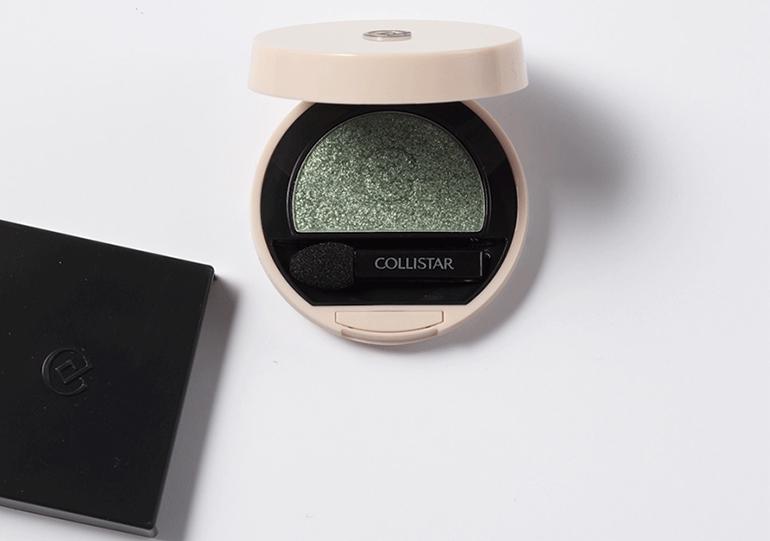
Promotion of recycling activities
Fiorini International Spa stepped onto the podium for its promotion of recycling actvities. Its packaging for dry pasta has been changed from a paper bag and a polypropylene window to transparent paper: it, therefore, becomes a single-material in the maximum recyclability band in the paper supply chain. Its production significantly reduces the CO2 emitted into the atmosphere.
General considerations. Attention has been focused on the mono-materiality and design of the packaging. The search for single-material paper solutions with an equivalent performance to those using other materials combined with paper, is to be supported and promoted.
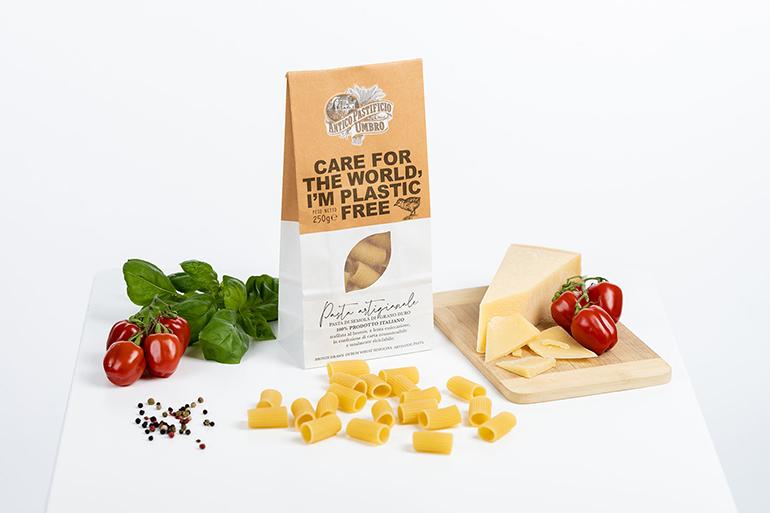
Use of recycled material
Magic Pack Srl triumphs for the use of recycled material. Its tray in expended polystyrene intended to hold fresh meat, before composed only of virgin material, has been redesigned to be produced with 27.4% of recycled XPS. Both the consumption of water and energy and CO2 emissions have been reduced by around 10%.
General considerations. The recycling of packaging in expanded polystyrene is a continuously evolving supply chain, already permitting, and which will increasingly permit, making secondary raw materials available for new production cycles.
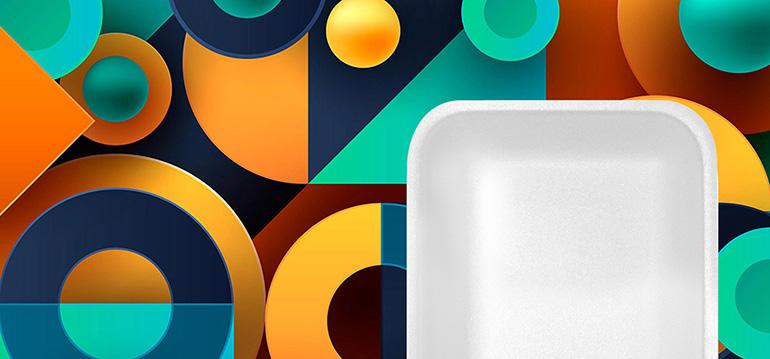
New applications or technologies
- Di Mauro Officine Grafiche SpA was awarded for the use of new applications or technologies. The 25 kg bag of feed for fish, intended for farmers in the B2B channel, replaces the old multi-layer polyamide and polyethylene combination with a new single-material film in polyethylene. Both emissions of CO2 and water consumption have been reduced by over 40%.
- Selex SpA also numbers among the five super-winners for the use of new applications or technologies. For its mozzarella packets it has, in fact, abandoned the multi-layer film in polyamide and polyethylene, opting for a mono-polymer film in polypropylene. It’s a modification that has reduced the thickness of the packaging and lowered its weight by 4%.
General considerations. Attention focused on developments that have made it possible to eliminate barrier layers in food packaging, facilitating in this way the recyclability of the packaging. To assess cases involving the recyclability of plastic packaging, in particular, reference was made to the list of CACs classified by different types of plastic packaging as published on the conai.org site, which establishes bands according to the circuit of destination and the existence of selection and recycling supply chains which are already consolidated (or in the process of consolidation), at the current state of existing technologies on an industrial scale.
This list is updated with respect to technological evolution, systems updating and the development of the market of secondary raw materials (SRM) that permits the use of SRM in new production cycles.
Special mention
Rotomail Italia Spa received a special mention for optimising packaging in the e-commerce sector. For shipping editorial products, it has replaced corrugated cardboard boxes in predefined sizes with tailor-made boxes for products contained in 100% recycled cardboard, closed without adhesive tape but only with the interlocking of the various parts of the box held with glue. The saving of raw material is 36%, together with a 34% reduction of waste.
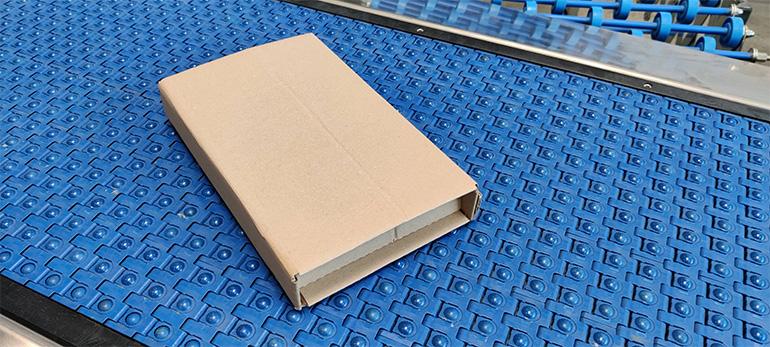
450 thousand euros shared between the other 238 innovations
As well as the super-winners, awards were given by CONAI to another 238 innovations that developed greener packaging (last year, in total, the cases awarded were 185) through the implementation of at least one of the seven eco-design tools: saving of raw material, simplification of the packaging system, optimization of logistics, use of recycled material, reuse, promotion of recycling activities and optimization of production processes.
These 238 cases shared the remaining 450,000 euros of prize money. In general, the focus on an efficient use of resources is confirmed as the path most companies choose to follow: ever-lighter packaging that aims to save on material as a means to more widespread eco-design. Cases of packaging made with recycled material were also very frequent, an increase already noted in 2021 and confirmed in the 2022 edition.
Italians are designing green
the president of conai, luca ruini, summed up the initiative which has grown in value and credibility from year to year.
«we are very satisfied to see, with each new edition, italian companies submitting a growing number of cases of packaging revised from a sustainable point of view. i supported and followed the creation of the contest nine years ago, and the success of the 2022 edition is, for all of us, a new confirmation of how important it is to encourage good practices and make them examples to be imitated. designing packaging is not simple: it’s a complex task which, if well done, can certainly help to reduce the impacts of a package on the environment during its life-cycle. eco-design, moreover, makes it possible to reduce energy consumption and the emission of carbon dioxide: this is why, at this time of an energy as well as a climate crisis, it is important to try to safeguard the planet also through this approach. The awarded companies have done just that».


